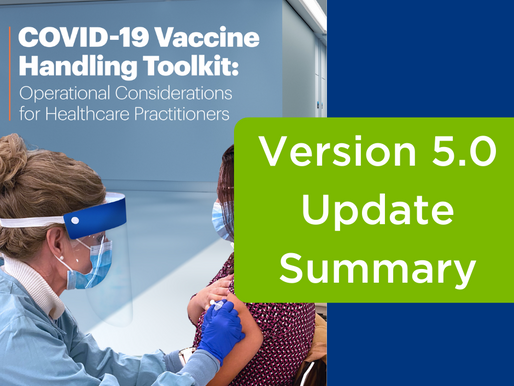Transporting multi-dose COVID-19 vaccine vials? Read this short post for updated USP guidelines

COVID-19 vaccines not properly stored or transported are at increased risk for reduced potency, which can lead to poor protection against the virus. Having qualified containers to maintain temperature over specified times throughout the supply chain can be critical in helping safeguard vaccines so that their efficacy is maximized.
Recent updates to USP’s COVID-19 Vaccine Handling Toolkit address a number of important operational considerations around handling, storage and transport. The new guidelines may help clarify or even change the way you are currently handling COVID-19 vaccines.
Temperature Updates
In pages 14-16 of the guide updated Nov. 2021, there are new guidelines for transporting refrigerated, multi-dose, vaccine vials. Each vaccine manufacturer has specific storage specifications, but one thing many have in common is a storage temperature of 2°C-8°C, for different specified times (see pages 14-16 of the new guide).
Vaccine Temperature Monitoring
The guide also emphasizes the importance of using appropriate containers that will “maintain temperature consistency across transport to administration site,” and stresses that to ensure the contents are within the specified temperature range, it is recommended to also have a temperature monitoring device that can continuously monitor vaccine temperature.



Efficient and Effective Transport Solutions
MaxPlus Vaccine Coolers were developed with input from state health agencies, hospitals, pharmacies, and clinics starting in September 2020 and have since been providing both thermal protection and continuous temperature monitoring for last-mile storage and transport of vaccine. Designed specifically for handling vaccines, by following CDC guidelines for recommended specifications, the coolers are pre-qualified for 2°C-8°C storage and transport and have the option to include an integrated temperature monitoring device.
MaxQ Vaccine Coolers are constructed of a durable polypropylene plastic. This robust construction protects contents against damage during transport. Unlike foam containers, which do not provide the same level of protection, these coolers are reusable and easy to clean and disinfect.

